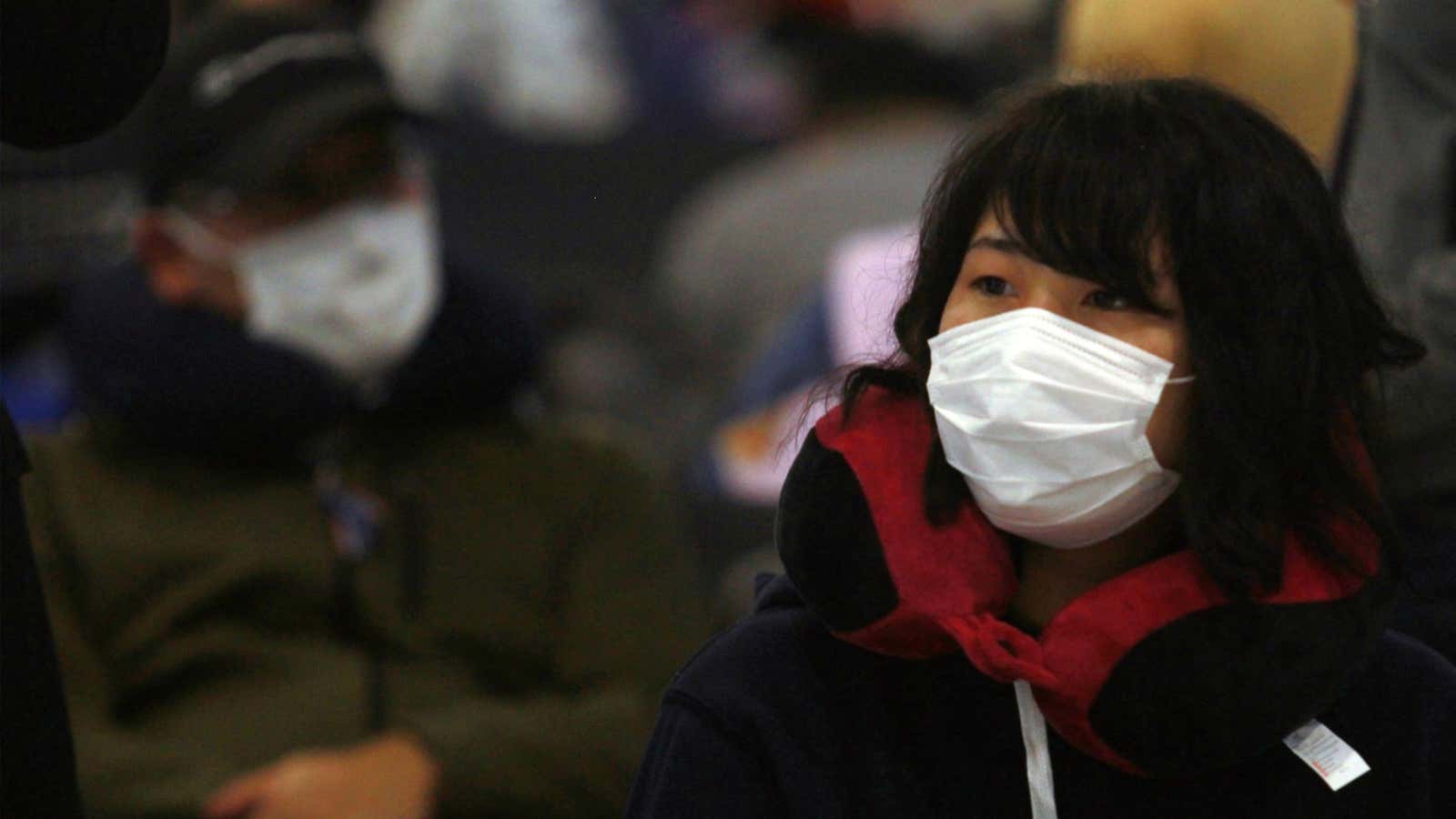“They wouldn’t let us go through, and you will not let us enter. What are we supposed to do? Live on this bridge?”
That’s the question asked by an increasingly desperate Chinese father at a checkpoint after driving back and forth on a bridge trying to get back into the city of Chongqing with his wife and young son. The problem: since the family left on their Lunar New Year holiday last week, a coronavirus outbreak in China has worsened, numerous cities have been put under quarantine, and many more are treating people who try to enter with enormous suspicion. With official IDs that show his wife’s address in Guizhou—at the other end of the bridge—while his is in Chongqing, neither city is willing to take the whole family.
“Even your own city doesn’t want to take you, why would we want to?” says a person at the checkpoint on the Guizhou end, according to the young father’s dashcam video, which has been widely shared online in China in recent days.
It’s an experience that’s unfolding all over China among people who had already traveled away from home when authorities abruptly imposed travel restrictions starting Jan. 23 to halt the spread of a new virus that has now claimed nearly 500 lives (link in Chinese). More than 50 million residents, including 11 million in the city of Wuhan, where the outbreak began in December, are currently barred from leaving. Those who left before they were put on lockdown are suddenly pariahs—rejected by hotels, driven away by neighbors or even being sealed into their apartments for 14-day quarantines due to concerns about the virus.
With the extended Lunar New Year holiday over as of Sunday (Feb. 2), millions of migrants who are trying to return to the cities where they work or study are also finding themselves unwelcome. A number of cities (link in Chinese) this week began requiring all residential buildings to bar “outsiders,” such as food deliverymen, from entering the buildings. In theory, the new restrictions don’t require the complexes to bar waidiren or “people from another area,” a term commonly used for migrants. In practice, with authorities and buildings relying on a person’s address from their hukou, or official registered address, that’s not the case. While the Chinese economy depends on tens of millions of migrants, the hukou system permanently anchors people in China to their place of origin, which means on paper they don’t belong to the cities where they live.
“It’s 2:02 am in the morning, and I am blocked from entering my building in Hangzhou. It has been two hours and I don’t know what language I could use to express my anger and disappointment! All the hotels were shut, and I had to sleep on a sofa in the property management’s office,” wrote a Weibo user (link in Chinese) today (Feb. 5). The user, who refused to give her full name, told Quartz that she came back to Hangzhou, where she works, from her home town in Jiangxi province late yesterday and was immediately denied entry after the management learned she was not from Hangzhou.
The eastern city, which is home to e-commerce giant Alibaba, issued a notice (link in Chinese) on Feb. 4 to require all residential complexes to adopt a “closed-off management” style, asking residents to present their IDs and have their temperatures tested when going in or out. Several other cities including Ningbo, Nanjing, Fuzhou and even Harbin, the capital of China’s northernmost province Heilongjiang, which is more than 2,300 kilometers (1430 miles) away from Wuhan, have also imposed similar restrictions(link in Chinese).
In Beijing, although the government has said no such discriminatory entry restrictions should be imposed on the migrants, there are reports of some of the city’s smaller villages doing so. Some residential complexes (link in Chinese) also said while property owners could enter the buildings, the tenants, most of whom are non-Beijing citizens, would be screened for residents from the most affected provinces.
“The management said initially they were told only residents from Hubei province and Wenzhou [in Zhejiang province] could not enter the buildings. But they got a sudden government notice yesterday night saying no outsiders could be allowed in, regardless of where they came from,” the tenant in Hangzhou told Quartz. “Where do they expect people like us to go? We have to wander around on the streets: isn’t that a bigger risk for spreading the virus?”
She later said she finally got into her apartment after acquiring a document from her company that guaranteed that if she shows any symptoms of the virus such as coughing or having a fever, the company will take full responsibility. But a friend of hers was not as lucky. Despite remaining in Hangzhou since the outbreak of the virus, the woman is currently unable to get back to her flat only because she left the complex briefly to feed a friend’s cat, and was not allowed back in. “She is still ‘in exile’ currently,” said the user.
The unfortunate experience of the user has been echoed by many on the Chinese internet. Hashtags like #Hangzhou closed off residential buildings# and #Harbin closed off residential buildings# started trending on the network yesterday (Feb. 4), and many complained they weren’t allowed into their own flats.
“They just said ‘waidiren’ could not enter the flats as if the order was a light joke. Waidiren’s dignity is nothing, their homes are nothing and their economic loss is also nothing. This is just the sacrifice of a vulnerable group that is not worth mentioning,” wrote user Yang Zixu under the hashtags.
